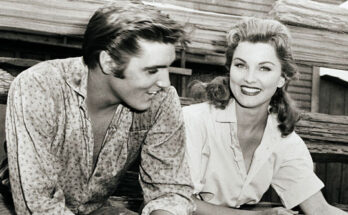The stage was silent. A single spotlight illuminated a young girl—no older than eleven—standing alone before thousands. Her dress shimmered softly under the bright lights, and her small hands gripped the microphone as if it were her lifeline. There was no fear in her eyes. No tremble in her stance. She simply waited—for the first note of the music.

One judge whispered, “That’s a big song for someone so young.”
He was right. She had chosen a legendary song—the kind that breaks even the most seasoned performers. Too emotional. Too demanding. Too iconic. Yet here she was, a tiny figure daring to take on something colossal.
Then, the piano began.
The crowd leaned forward. The judges braced themselves for what they assumed would be a brave attempt—perhaps sweet, maybe shaky. And then, she sang.
The first note—pure, clear, flawless—cut through the silence like lightning. It stopped the room cold. The audience froze. A pen fell from a judge’s hand and hit the desk with a tiny click. The world, for that one breath, stood still.
Her voice wasn’t mimicking anyone. It was real. Honest. Filled with emotion far beyond her years. Every word carried weight—pain, hope, and passion woven together in perfect control. It wasn’t just a performance; it was a story, lived and told in real time.
As the song built toward the chorus, her voice grew stronger, richer, and more commanding. Then came the note. The impossible note. The one singers dream of but rarely reach.
She hit it—and held it.
The audience gasped. One judge covered her mouth, eyes wide with disbelief. Another stood up instinctively, unable to sit still any longer. The note soared through the room, shaking the walls and leaving goosebumps on every arm.
When the music faded, the final soft note lingered in the air like a heartbeat. Then, silence again—just for a second.
And then the room exploded.
Applause thundered. People stood



